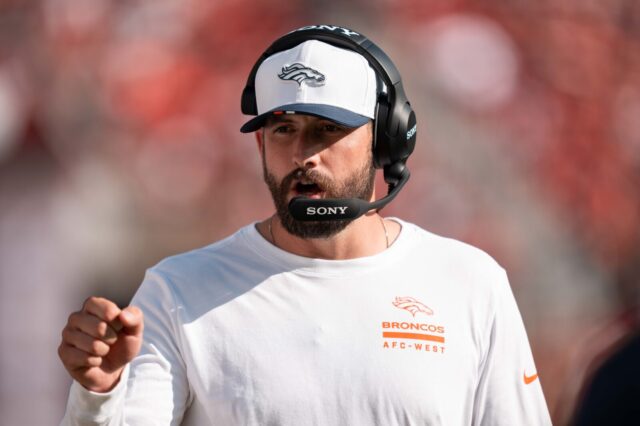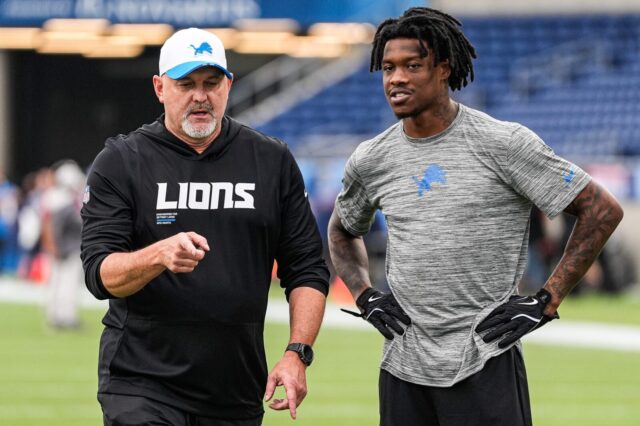Hi, I’m Zach.
I’m 28 years old, work in sports media and I enjoy walking upright without pain, running (enjoyed considerably less) pain-free and wrestling with my dog. I can’t remember the last time I had a bad headache, and the only time I find myself rummaging through the medicine cabinet for something so extreme as Tylenol is when I’ve tied on one too many the night before.
Do me a favor: Find a current or former NFL player, also 28 years old, and ask them if they can check all (or any) of those same boxes. Perhaps then you’ll understand the decision of 24-year-old Chris Borland, who abruptly retired from the NFL on Tuesday following his rookie season.
I was never close to being a professional athlete. But while citing any experience below college level athletics opens one up to derision from readers, I did spend time in hockey juniors and spent time on a Division I rugby club. As such, I consider myself incredibly fortunate to have never had a concussion (to my knowledge), but the reality is that most athletes at any level are not that lucky.
It’s estimated that approximately 400,000 brain injuries occur every year in high school athletics. In football, there are three times the number of “catastrophic” injuries among high school athletes than there are at the college level. In other words, Borland didn’t just have his eyes opened after one season in the NFL.
“I just thought to myself, ‘What am I doing?’” Borland told ESPN about a concussion he played through in training camp. “‘Is this how I’m going to live my adult life, banging my head, especially with what I’ve learned and know about the dangers?’”
To some, that somehow makes Borland a coward. The number of fans and pundits who accused the young man of quitting on his team and his friends was nauseating.
While I may have been fortunate in my own athletic endeavors, I can’t possibly imagine that anyone who has even seen the effects of head trauma firsthand would have the utter classlessness to call out Borland.
I once drove a 19-year-old kid an hour-and-a-half from a rugby tournament to the nearest hospital. He had sustained his first concussion in a game earlier that day. He spent the entire drive, and several hours after, asking the same three questions:
“Where are we?”
“How did we get here?”
“Where are we going?”
Three questions, every five minutes, for probably four hours. It was like being in the movie 50 First Dates, and it was legitimately frightening. Maybe those particular symptoms are temporary, but the long-term effects of a blow that caused someone to forget everything that happened for an entire day of their life is sobering.
How many times do you think that Chris Borland has witnessed that same scenario? How many times has the young linebacker had to witness teammates morph into totally different personalities while dealing with concussion symptoms? Has Borland ever gone to visit a teammate only to find all the lights out at the house and a friend who is irritable and barely resembles his normal self? Perhaps he’s even been in one of those situations. With his comment above, we now know that he’s been concussed before and felt obligated to continue playing.
When I consider this, I believe Borland made a wise decision. When I consider that three quarters of the players drafted in the NFL are gone within four years, it looks even better. But as Rams defensive end Chris Long pointed out, “still it takes a man to do the logical.”
With the benefit of a little more age, hindsight and more focus on my family, it’s easy for me to sit here and say that Borland has more than enough money to begin his life, plus now the benefit of health that will fail so many of his NFL brethren. But at 23 years old, I can promise you that I would not have been able to walk away as Borland is.
“So P. Willis and Chris Borland?” Broncos linebacker Brandon Marshall asked via Twitter. “They know something that we don’t?”
That’s exactly it. They don’t. They know exactly as much as Marshall or Long or any other player in the NFL knows about head trauma (or chooses to know about it). Knowing everything we know about brain injuries, it’s still incredibly difficult to turn down the kind of paychecks that Borland, at 23 years old, will now likely never see again in his life.
Ultimately, that’s why we should applaud Chris Borland. Not because he made what I would deem to be the “wise” or “correct” decision; that varies from person to person. Instead, I applaud Chris Borland for making a difficult decision in the face of public backlash and the loss of millions of dollars in revenue, and in a situation where most of us would have never even seen an option at his age.
How many TV dramas portray the sympathetic villain, chronically ill and turning to crime (or other big-money endeavors) to try and drum up financial support for their families? Heck, it was the entire premise of Breaking Bad.
For many young NFL players, that is the reality of football. It’s a way to college, where money failed you; it’s a way to money for a family that needs it. For many NFL hopefuls, playing for something bigger than themselves isn’t a reference to their uniform, or the league’s “all-important” shield. Many present and former players expressed as much on social media in the wake of Borland’s decision.
With the majority of athletes and ex-athletes, though, there was a hint of “I wish I could do that” behind their words of support for the former 49ers linebacker.
“Lots of guys don’t have a backup plan,” said former Ohio State running back Maurice Clarett via Twitter. “They often tolerate trauma for the paycheck. It all comes down to quality of life for each individual.”
I don’t know if Chris Borland has a backup plan. Former Bronco John Moffitt’s plunge into partying and drug abuse following his abrupt retirement at age 27 provides a cautionary tale of what can happen to someone who took his NFL career for granted.
What I do know is that at my age it’s difficult to imagine the kind of pain that makes it difficult to get out of bed in the morning, yet that is an everyday reality to current and former NFL players who aren’t even on the north side of 30.
Chris Borland stuck with football long enough to know that he had a fighting chance at greatness. Now, he’s getting out in time to give himself a fighting chance at a better quality of life for his future.
If you truly find fault in that, then there’s nothing I can do for you.



